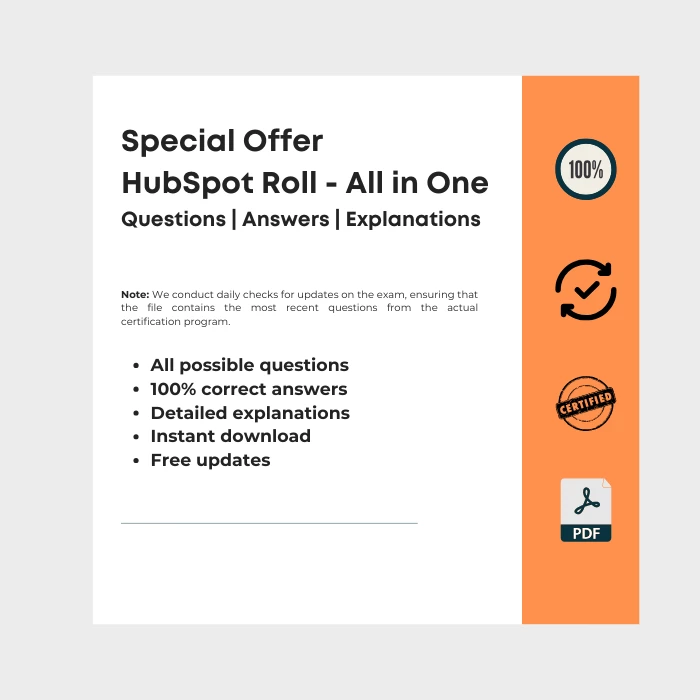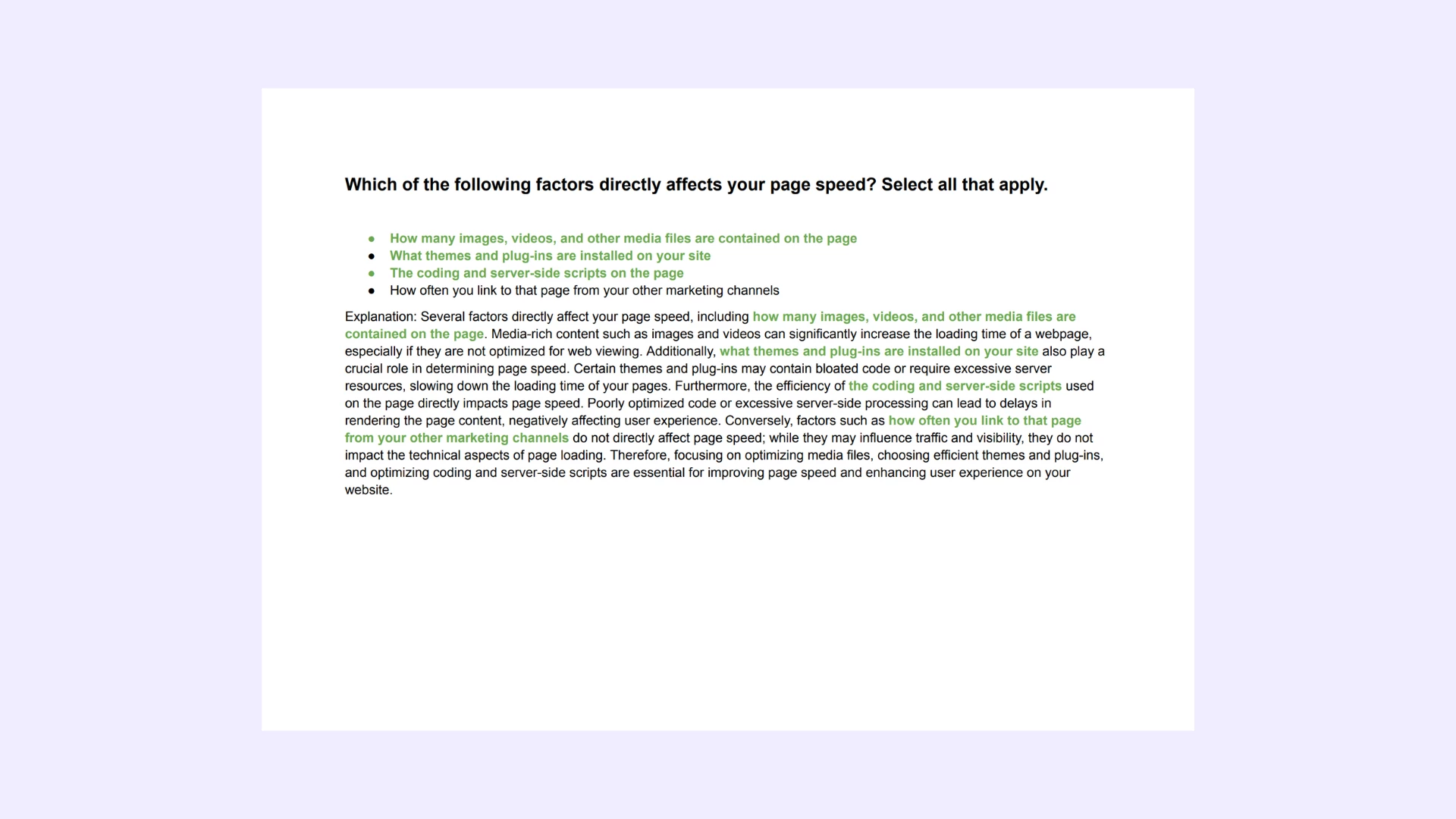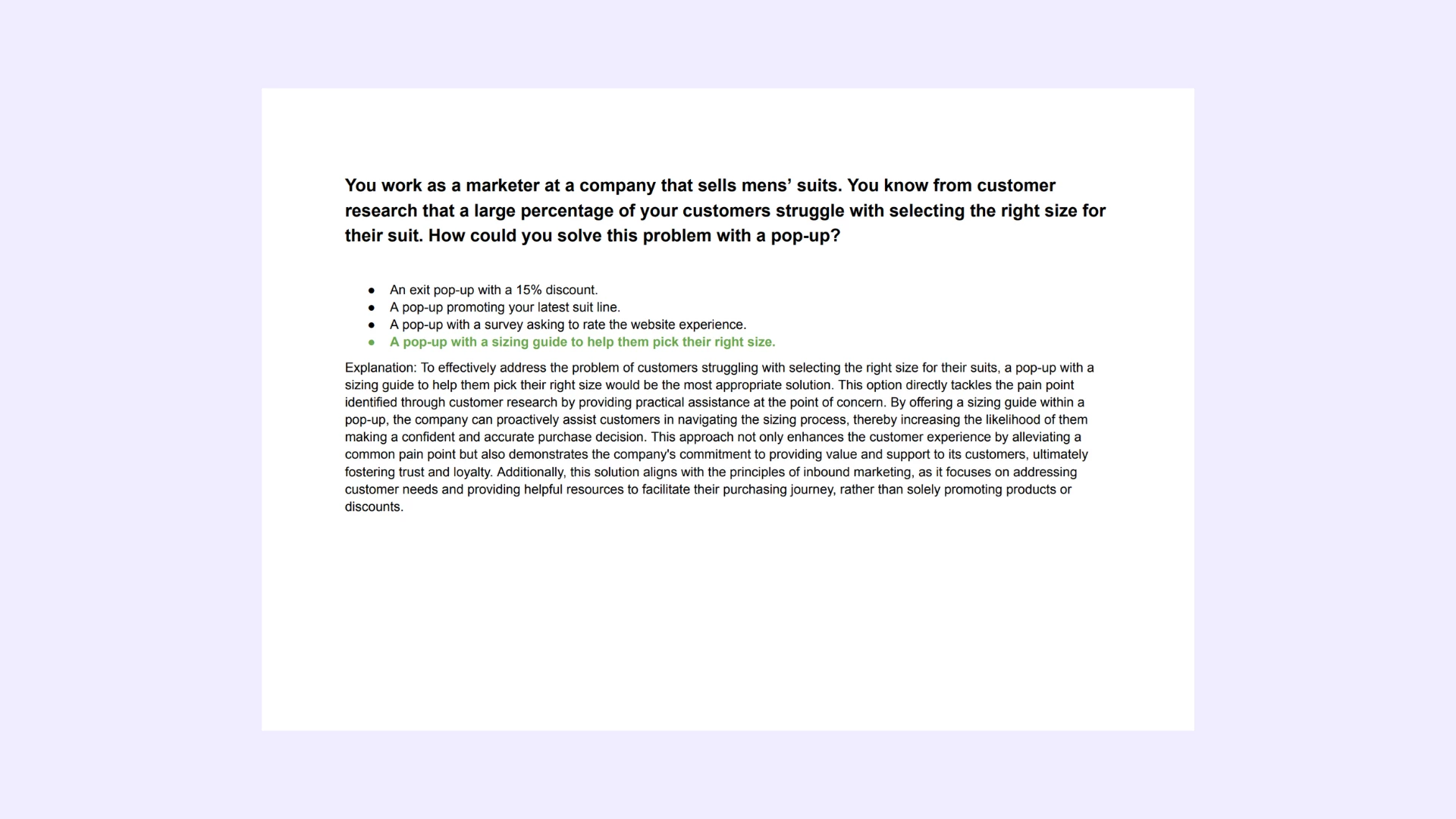True or False? It is a best practice to make your URLs as long and descriptive as possible.
True
False

HubSpot Roll. Includes Answers for Every Real HubSpot Certification Exam.
All-in-One: Get all HubSpot exams answers with explanations in one bundle. This package includes answers for every current HubSpot certification. Regular updates to reflect the latest exam version. -> See what's included.


Need a single cerification exam answers? Check out our -> list of certification exams answer keys. Learn Smarter. Obtain or Renew your certificates with peace of mind!
Explanation: True or False? It is a best practice to make your URLs as long and descriptive as possible.
Explanation: The correct answer is: **False**. It is not a best practice to make URLs as long and descriptive as possible. In fact, shorter, concise, and descriptive URLs are generally preferred for several reasons. Firstly, shorter URLs are easier for users to read, understand, and remember, increasing the likelihood of them being clicked on and shared. Additionally, shorter URLs are more aesthetically pleasing and can improve the overall user experience by reducing clutter and visual distractions. From an SEO perspective, concise URLs containing relevant keywords can also contribute to better search engine visibility and rankings, as they provide clear signals about the content and topic of the page to search engines. Long, overly descriptive URLs, on the other hand, can be cumbersome, difficult to read, and prone to truncation in search results, diminishing their effectiveness in conveying the content's relevance and diminishing the user experience. Therefore, it is not a best practice to make URLs as long and descriptive as possible; instead, website owners should aim for short, meaningful, and keyword-rich URLs that accurately reflect the content of the page while remaining user-friendly and optimized for search engines.

Special Bundle Offer HubSpot Roll. All in One
Note: We conduct daily checks for updates on the exam, ensuring that the file contains the most recent questions from the actual certification program.
Questions | Answers | Explanations. FREE Updates.
You may also be interested:
- Special HubSpot bundle offer - all HubSpot exams in one
- HubSpot CMS for develpers certification exam answers
- HubSpot CMS for develpers II certification exam answers
- HubSpot content hub for marketers certification exam answers
- HubSpot content marketing certification exam answers
- HubSpot contextual marketing certification exam answers
- HubSpot digital advertising certification exam answers
- HubSpot digital marketing certification exam answers
- HubSpot email marketing certification exam answers
- HubSpot frictionless sales certification exam answers
- HubSpot growth driven design certification exam answers
- HubSpot inbound certification exam answers
- HubSpot inbound marketing certification exam answers
- HubSpot inbound marketing optimization certification exam answers
- HubSpot inbound sales certification exam answers
- HubSpot integrating with HubSpot I foundations certification exam answers
- HubSpot marketing hub software certification exam answers
- HubSpot reporting certification exam answers
- HubSpot revenue operations certification exam answers
- HubSpot sales enablement certification exam answers
- HubSpot sales hub software certification exam answers
- HubSpot sales management certification exam answers
- HubSpot sales software certification exam answers
- HubSpot seo certification exam answers
- HubSpot seo II certification exam answers
- HubSpot service hub software certification exam answers
- HubSpot social media marketing certification exam answers
- HubSpot social media marketing II certification exam answers